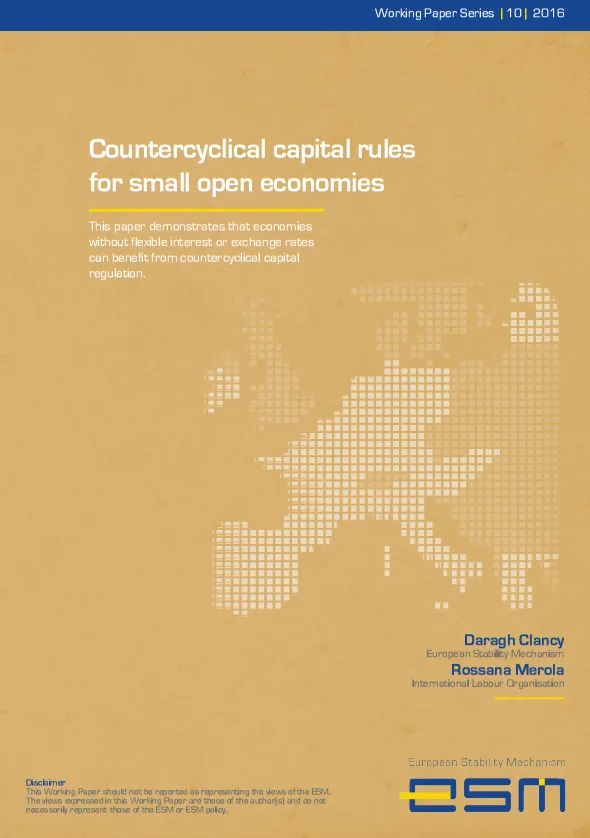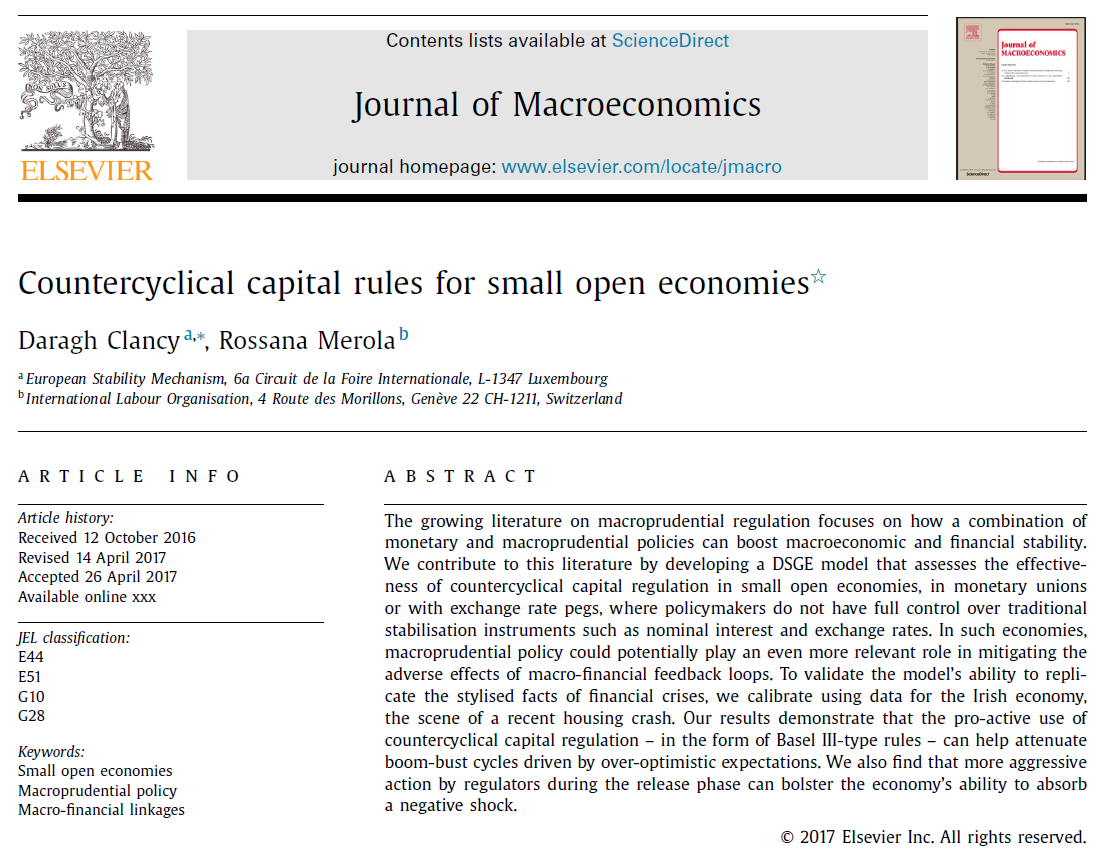Countercyclical Capital Rules for Small Open Economies

Download PDF: Working Paper 10
This paper demonstrates that economies without flexible interest or exchange rates can benefit from countercyclical capital regulation.
Author: Daragh Clancy | Senior Economist at the European Stability Mechanism
with Rossana Merola | International Labour Organisation
Abstract:
The growing literature on macroprudential regulation focuses on how a combination monetary and macroprudential policies can boost financial stability. We contribute to this literature by developing a DSGE model that assesses the effectiveness of countercyclical capital regulation in small open economies, in monetary unions or with exchange rate pegs, where policymakers do not have full control over traditional stabilisation instruments such as nominal interest and exchange rates. Our model shows that, in such economies, macroprudential policy must play an outsized role in mitigating the adverse effects of macro-financial feedback loops. To validate the model’s ability to replicate the stylised facts of financial crises, we calibrate using data for the Irish economy the recent housing crash. Our results demonstrate that the pro-active use of countercyclical capital regulation can indeed help ensure financial stability. In terms of policy advice, we find that bestowing even greater flexibility on regulators to act against the credit cycle has positive benefits. We also find that more aggressive action during the release phase can bolster the economy’s ability to absorb a negative shock.
This paper was also published in the Journal of Macroeconomics in May 2017

Disclaimer: This Working Paper should not be reported as representing the views of the ESM. The views expressed in this Working Paper are those of the author(s) and do not necessarily represent those of the ESM or ESM policy. No responsibility or liability is accepted by the ESM in relation to the accuracy or completeness of the information, including any data sets, presented in this Working Paper.
JEL codes: E44, E51, G10, G28